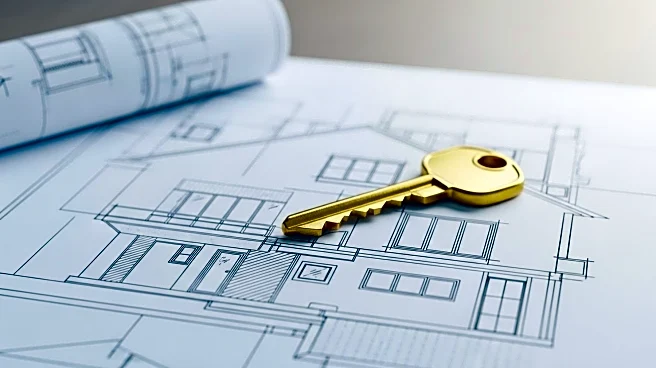What is the story about?
What's Happening?
Charlotte has been ranked among the top U.S. metros for new home construction, according to a report by Realtor.com. The city is part of a nationwide trend where midsize cities and college towns with relatively low costs of living are attracting new residents and investment from industries like tech and manufacturing. Builders are responding by offering well-priced, sustainable homes to meet local demand. The report highlights that new builds now make up over 40% of listings in some leading markets, often priced below existing homes. Southern cities like Fayetteville, Boise, and Raleigh are leading the growth in new construction, driven by strong local job markets, builder investment, and affordability.
Why It's Important?
The growth in new home construction in cities like Charlotte is crucial in addressing the U.S. housing shortage, which is estimated at nearly 4 million homes. By increasing the supply of affordable, newly built homes, these cities are helping to close the gap between supply and demand, offering families a chance at homeownership. The trend also supports local economies by attracting new residents and investment, which can lead to job creation and economic growth. Additionally, the focus on sustainable building practices contributes to long-term resilience and livability in these communities.
What's Next?
As the demand for affordable housing continues, cities like Charlotte are expected to maintain their growth in new home construction. Local, state, and federal governments may need to enact policies that support this trend by reducing zoning barriers and promoting sustainable building practices. This could further enhance affordability and livability, making these cities attractive destinations for new residents and industries.
Beyond the Headlines
The trend towards townsizing and reducing zoning restrictions could have broader implications for urban planning and development across the U.S. It may lead to a reevaluation of zoning laws and encourage more sustainable and inclusive growth in cities, potentially transforming the housing market and urban landscapes.
















